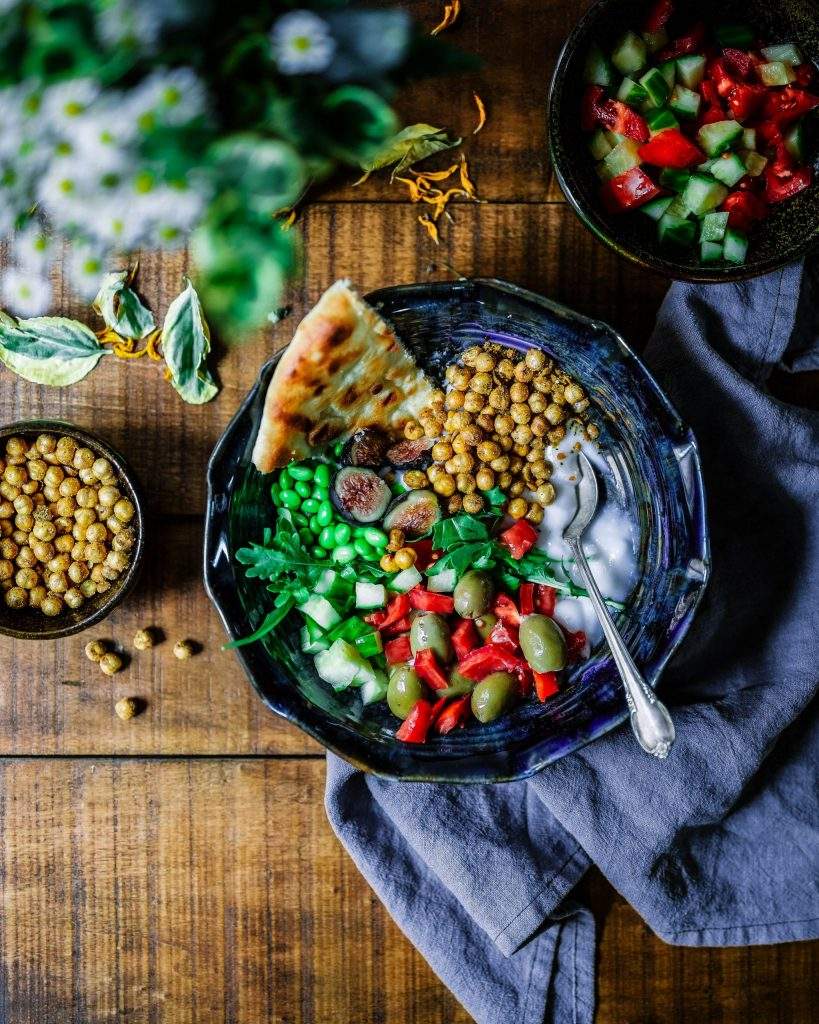
Vegan Diet For Weight Loss: 6 Things To Know Before Starting It

About 1 billion people around the world eat vegan or vegetarian food. The reasons given are mainly the protection of animals, the environment, and health. A vegan diet does without all animal products, and therefore of:
- Meat and meat products
- Fish and seafood products
- Milk and dairy products
- Eggs
- Honey
When done right, a vegan diet is simple, versatile, tasty, and above all healthy! But the question you may be asking yourself is: does it make you lose weight?
Eating vegetarian or vegan appears to have a greater impact on weight loss than diets that include animal products. However, those fewer pounds shouldn’t be the only reason why you decide to avoid animal products: people who eat vegan food have a lower risk of developing diabetes mellitus, they have lower cholesterol levels, so as a lower body mass index than people who consume animal products.
A plant-based diet includes a wide variety of fresh, tasty, and colorful foods (to be combined in a thousand ways). The basic idea is not to conceive of this type of food as a renunciation of something.
Wondering what vegans eat?
Fruits, vegetables, legumes, grains, soy products, nuts, oilseeds, and fats.
Have you decided to give up on animal products, but don’t know how to get started? Here are the KissAnime 6 best tips for starting a vegan diet.
HOW THE VEGAN DIET WORKS:
1.GET INFORMED!
One of the most important requirements for an effective diet change is reading up. Find out about your nutritional needs before starting. In this way, you guarantee the body a sufficient supply of minerals, vitamins, etc. In our blog article, you can read more about the micronutrients you should pay special attention to if you follow a vegan diet. At first, a nutritional diary can also help you figure out if you are consuming all the necessary macro and micronutrients.
Good to know:
In principle, a plant-based diet contains all the important nutrients (yes, even proteins!). The trick is to eat a varied and balanced diet. One possible deficiency, however, is that of vitamin B12. Ask your doctor about any dietary supplements to take. Taking omega-3 fatty acids can also be helpful.
WHAT PLANT FOODS DO THEY PROVIDE …
Proteins? Soy and soy products, legumes, whole grain products, quinoa, green vegetables, nuts, and peanut butter.
Iron? Legumes, cereals, green vegetables, nuts, seeds.
Zinc? Beans, nuts, seeds, oatmeal, yeast flakes.
Calcium? Green leafy vegetables, beans, almonds, sesame seeds, enriched plant milk, and fruit juices
Omega-3 fatty acids? Flax seeds, chia seeds, hemp seeds, walnuts, seaweed
2.START CALMLY
Giving up all animal products can be a big change. Becoming vegan is a process! So it would be optimal to proceed step by step. How about replacing one meal a day to start with? Or you can decide to only cook vegan food at home and make some exceptions when you are out.
Proceed with this change at your own pace, finding new favorite vegan recipes, restaurants, or plant products.
3.FILL THE REFRIGERATOR AND PANTRY WITH NEW FOODS
In order not to be tempted, we recommend that you remove animal products from the refrigerator and pantry and stock up on healthy and plant-based foods. You can always finish the animal products you have aside first or decide to give them to friends and relatives, the choice is yours.
4.MORE CREATIVITY IN THE KITCHEN
Take the opportunity to start a new culinary journey and have fun trying new vegan recipes (preferably with friends or family). The choice of healthy and wholesome plant foods is wide and varied! Eat everything. This brings us to the next point …
Don’t you ever feel like cooking?
There are now many restaurants that offer vegan food or that specialize exclusively in vegan cuisine.
5.AVOID VEGAN SUBSTITUTE PRODUCTS
In a balanced and vegan diet, there is also room for vegan substitute products (vegan sausage, vegan minced meat, vegan cheese, etc.) however, these industrially processed foods are usually very high in calories, low in nutrients, and full of additives. Always read package labels to make sure a product does not contain sugar, added sodium, or preservatives.
Remember: eating vegan doesn’t automatically mean eating healthy! Pre-packaged vegan food should NOT be at the core of your diet, but be an exception once in a while.
6.EAT ENOUGH
Research shows that vegans consume less energy than people who also eat animal products. This is an advantage if you want to lose weight. But if you want to maintain your weight and follow a vegan diet, make sure you are eating enough. Fresh plant-based foods usually have a lower energy content. Compared to your previous diet, you may need to eat larger portions at main meals or smaller snacks several times a day to meet your daily calorie requirement. If you eat too little, your likelihood of hunger pangs will rise.
This way you will have the right attitude and will be able to successfully transition to a healthy and vegan lifestyle.